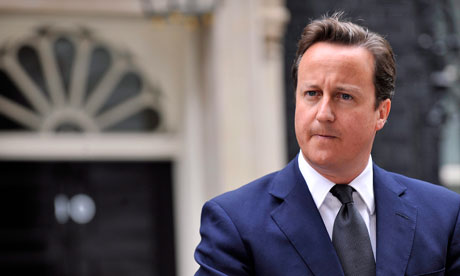Downing Street brushed aside libertarian objections, including some from the deputy prime minister Nick Clegg, to maintain that laws will be passed in the coming parliamentary sessions to allow secret court hearings in intelligence-related civil cases, and to extend state surveillance on the internet.
But David Cameron and the justice secretary, Ken Clarke, said they were willing to look at details of both proposals, including the Liberal Democrat demand that only a high court judge could rule a tribunal should be held in secret.
Clarke insisted he did not want ministers to make the decision on trials going into secret session, as some believe a loosely drafted green paper proposes. Clarke said such hearings would be held in a very small number of cases.
Clegg has also said the secret hearings should not be extended to inquests, such as those into the 7/7 bombings, but Clarke disagreed that inquests could be treated differently.
Labour sources said they were confused by Clegg's high-profile and belated interventions, arguing that he had been aware of both proposals for months, and claimed he had only voiced and leaked his opposition to them in the runup to the local elections next month.
Labour, claiming it had made its "responsible concerns" known in private, added that no attempt should be made to pass legislation in this coming parliamentary session, and said it would oppose any effort to extend such secret trials to cases involving organised crime.
The plans to extend surveillance of emails is being overseen by the home secretary, Theresa May, and the plans for secret courts is separately handled by Clarke's Ministry of Justice. Both plans come from the intelligence agencies.
The prime minister admitted these were difficult decisions, but insisted "There is still time to deal with everybody's concerns.
"As I see it, there are some significant gaps in our defences, gaps because of the moving on of technology - people making telephone calls through the internet, rather than through fixed lines. There are also gaps in our defences because it isn't currently possible to use intelligence information in a court of law without sometimes endangering national security."
No 10 suggested that draft clauses on extending the surveillance from phone calls to emails would be published as part of a bill for wide discussions. But it insisted this did not imply the government was backtracking on the idea of passing new laws in the coming parliamentary session.
The government plans for secret trials came under criticism from the joint committee on human rights (JCHR) on Wednesday. It argued the government had failed to provide proof for the reform.
The plans relate only to civil cases involving claims for damages, not criminal prosecutions.
No 10 said the proposals would make it easier to make it clear to the judiciary what intelligence was being used in courts, and also prevent expensive compensation claims.
The proposals for ministers to be able to authorise secret court hearings follows two legal defeats related to former Guantánamo Bay detainees.
In the first case, a British judge ordered the release of a previously secret summary of CIA documents on ex-Guantánamo Bay detainee Binyam Mohamed's mistreatment in Pakistan in 2002. In the second case in 2010, Britain paid £20m in compensation to 16 former Guantánamo Bay detainees who alleged UK complicity in their harsh treatment overseas, rather than contest the allegations in court.
Clarke, normally on the liberal wing in any internal coalition argument, defended the green paper's broadly drawn proposals. He disclosed he had been told the US intelligence agencies had already started to cut back on what they were willing to show to their UK counterparts as a result of the court ruling. He said: "I can't force the Americans to give our intelligence people full cooperation – if they fear our courts, they won't give us the material. Sometimes national security demands that you have to give a guarantee of complete confidentiality to third party countries – and not just the Americans".
Clarke said in the second case the government had made no admission of guilt, but was unable to defend itself because to do so would need intelligence officers to discuss their sources and techniques public.
Critics of the secret justice proposals are wary of any reassurances from ministers that they will be limited to national security cases. They point out that such arguments would have prevented the public from learning about MI5's complicity in the torture of Mohamed between 2002 and 2004, or the role Jack Straw, as foreign secretary, played in consigning British Muslims to Guantánamo Bay after 9/11.
Furthermore, the joint committee on human rights heard evidence that national security concerns could see the use of secret court sessions during civil claims arising out of the deaths of servicemen and women as a result of equipment failures – such as the 2006 Nimrod crash in which 14 airmen died – and even during litigation arising out of police stop-and-search operations.
They are also dismissive of Clarke's insistence that judges will have the final say over whether to sit in secret, as the green paper makes clear government ministers will make that decision, and that it can be rejected by judges only if they can argue that it was irrational or disproportionate, not because it was wrong.
The committee's report said that the government's claims that the current court system put national security at risk were "spurious", and said it agreed with the conclusion of lawyers working within the secret immigration appeals system that it is "inherently unfair".
Clare Algar, executive director of the legal charity Reprieve, which represented Mohamed, said Clegg's intervention did not go far enough. "What the government is proposing is a system in which they can use whatever evidence they like against the citizen, but the citizen is unable to challenge or even to see that evidence. This is unacceptable in any circumstances."
Martin Kettle, page 37>>













